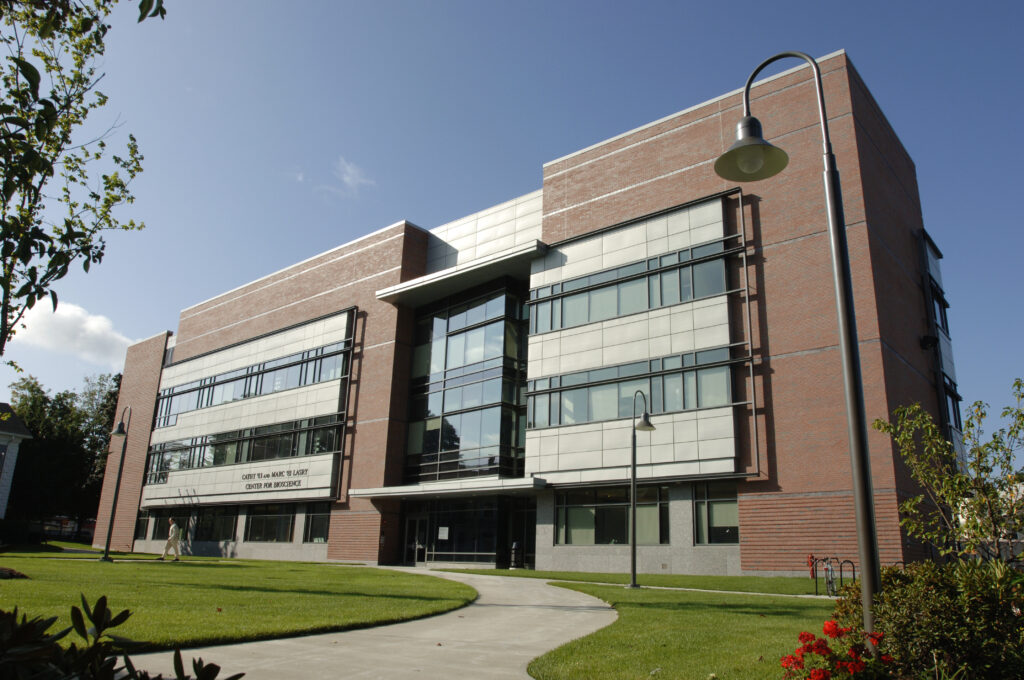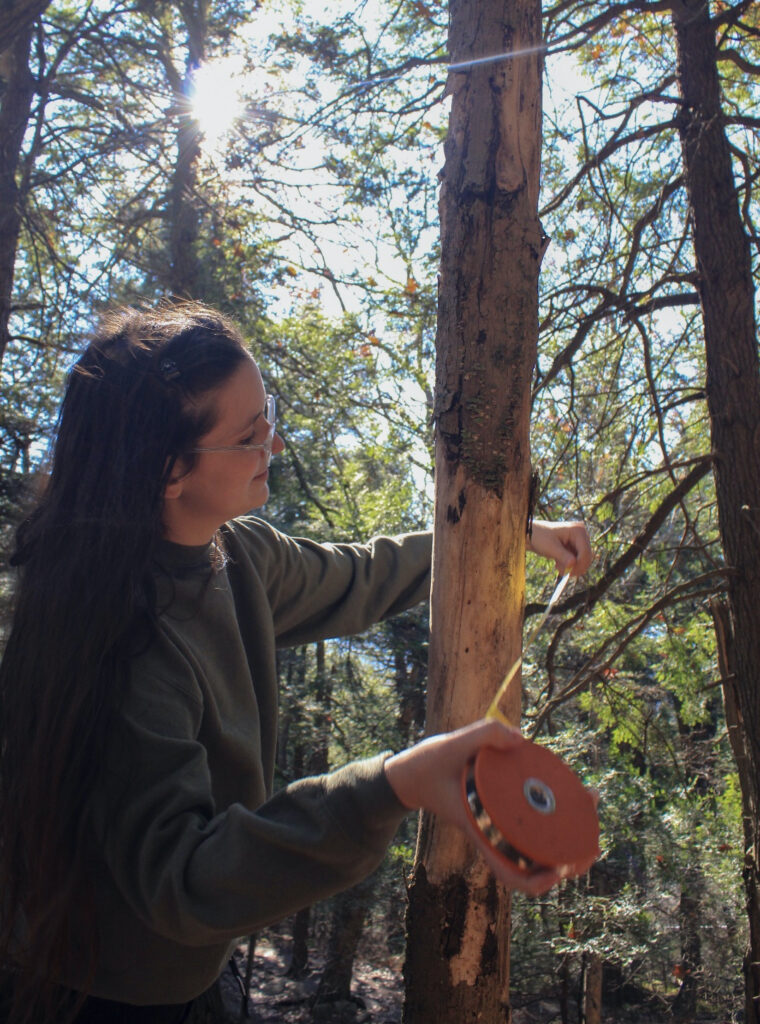‘We want to create a community of scholars’

Some Clark biology students — as well as students who may want to study biology — have yet to fully experience the Lasry Center for Bioscience after the COVID-19 pandemic kept them away from the building for much of the last two years. Faculty members are hoping to change that.
Students are encouraged to visit a faculty-sponsored research open house in the Lasry Center from 1:30 to 3 p.m. on March 2. The event is a chance for students interested in biosciences to discover the research happening in the center’s labs and classrooms.

Brooke Harris ’21, who is pursuing a master’s in biology through the fifth-year program, will present research involving live colonies of acorn-nesting ants that she and her undergraduate research partner Joshua Canning collected from across rural and urban areas of Worcester County.
They brought the ants to the lab and incubated them at different temperatures to see if living in a particular area or a certain climate alters the insects’ ability to adapt to their environment. Harris wants to know if climate change or urbanization affects how different species of ants perform.
“I’ll have the incubators going so I’ll be able to show the different temperature regimes I put the ants through,” says Harris. “People will be able to see different local native ants and also invasive ants we caught right around Clark.”
Other research being presented on Wednesday will include a plan to bring live bees to the labs, and deep looks into other insects and fungal specimens, among other topics.
“Clark is just really cool because all the Lasry labs are unique and interesting,” says Harris. “Clark has ants, lizards, mushrooms, fish. There are a lot of different things to see.”
Deborah Robertson, professor of biology, says the faculty in Lasry want to emphasize that the building is a place for collaboration with breakout spaces, labs, and classrooms.
“We want to create a community of scholars that feels welcome within our building and our research labs. During the pandemic we had much less opportunity for students to walk the halls of Lasry,” says Robertson.
Faculty members are looking forward to new opportunities for face-to-face conversations instead of online learning, she says. For current biology students, the open house is a chance to show their peers what they do in the labs and to share information about how to get involved in research.
“It’s for our students who are interested in biology, biochemistry, molecular biology, environmental, and conservation biology to feel at home in our building,” says Robertson.
One of Clark’s appeals, says Harris, is the University’s small campus. Once you’re here, “there’s no corner or crevice on campus where you don’t feel comfortable.” The open house, she says, offers a chance to chip away at the sense of isolation some students have felt during the pandemic.
“I think this is important, especially for the people who have only been at Clark since COVID. Now they can discover the Lasry building. Even for people who aren’t into the sciences, this is an opportunity to see what a research lab looks like,” says Harris.
The event will also feature information about funding opportunities for summer research and internships.


